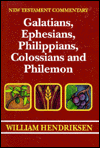Reading for Transformation
Over a year ago at Shizuka Blog, I wrote a piece called Wielding the Word, Living the Word that was about the difference between "using" the Bible and having ourselves changed by it. It may sound like a subtle difference, but it really is not. Too many of us, when we bother to read Scripture, read it for information or with some end result or answer predetermined, rather than read it so that God may be revealed to us in and through it.
A bit from that post:
[We] use Scripture as a tool (if we use it at all), rather than as the motivating muse for and lifeblood of what we are trying to say.
The early church, though –- those put-upon, persecuted, finding-their-way through the heresies and the apostasy and the violence and the prejudice early Christians -– wrote God’s Word in such a way as they lived it. The authors of the early church wove the Bible into the fabric of their writings, because the Bible was inextricably woven into the fabric of their lives.
I may be alone, but such knowledge convicts me. I am a toolbox biblicist, not a lifeblood one.
Feel free to go read the whole thing.
I am currently reading a book by Eugene Peterson (author of The Message translational paraphrase of the Bible) titled Eat This Book. Peterson's primary aim in the book is emphasizing the Christian's need to not merely read the Bible for inforation, but to feed on it for transformation. Here's a good excerpt:
The blunt reality is that for all our sophistication, learning, and self-study we don’t know enough to run our lives. The sorry state of the lives of the many who have taken their own experience as the text for their lives is a damning refutation of the pretensions of the sovereignty of the self. We require a text that reveals what we cannot know by simply pooling the acquired knowledge of the ages. The book, the Bible, reveals the self-revealing God and along with that the way the world is, the way life is, the way we are. We need to know the lay of the land that we are living in. We need to know what is involved in this Country of the Trinity, the world of God’s creation and salvation and blessing.
God and his ways are not what most of us think. Most of what we are told about God and his ways by our friends on the street, or read about him in the papers, or view on television, or think up on our own, is simply wrong. Maybe not dead wrong, but wrong enough to mess up the way we live. And this book is, precisely, revelation, a revealing of what we could never figure out on our own.
Without this text, firmly established at the authoritative center of our communal and personal lives, we will founder. We will sink into a swamp of well-meaning but ineffectual men and women who are mired unmercifully in our needs and wants and feelings.
Ouch.
Here's my question for today: When was the last time you read your Bible?
Not just opened it to look for something, but really read it?
Peace



















1 Comments:
Amen and amen, Jared. You are speaking the truth of it.
When Jesus was tempted by Satan he told Satan that man does not live by bread alone but by every word that comes out of the mouth of God.
The Bible is spiritual food and is as vital to life and to living as fleshly food is. We would no more think about going without a meal as we would commiting suicide, its just too uncomfortable to be hungry. Yet we are spiritually starved to the point of death.
I try to read the Bible everyday just the same as I eat everyday. I eat better spiritually than I do fleshly as there is more filet mignon in the Bible. ;-)
Even if it is an odd bit of scripture at least I've read it and it is subconciously in my mind. Not unlike mindlessly eating lunch while thinking about work.
Great post Jared! Thank you.
Post a Comment
<< Home